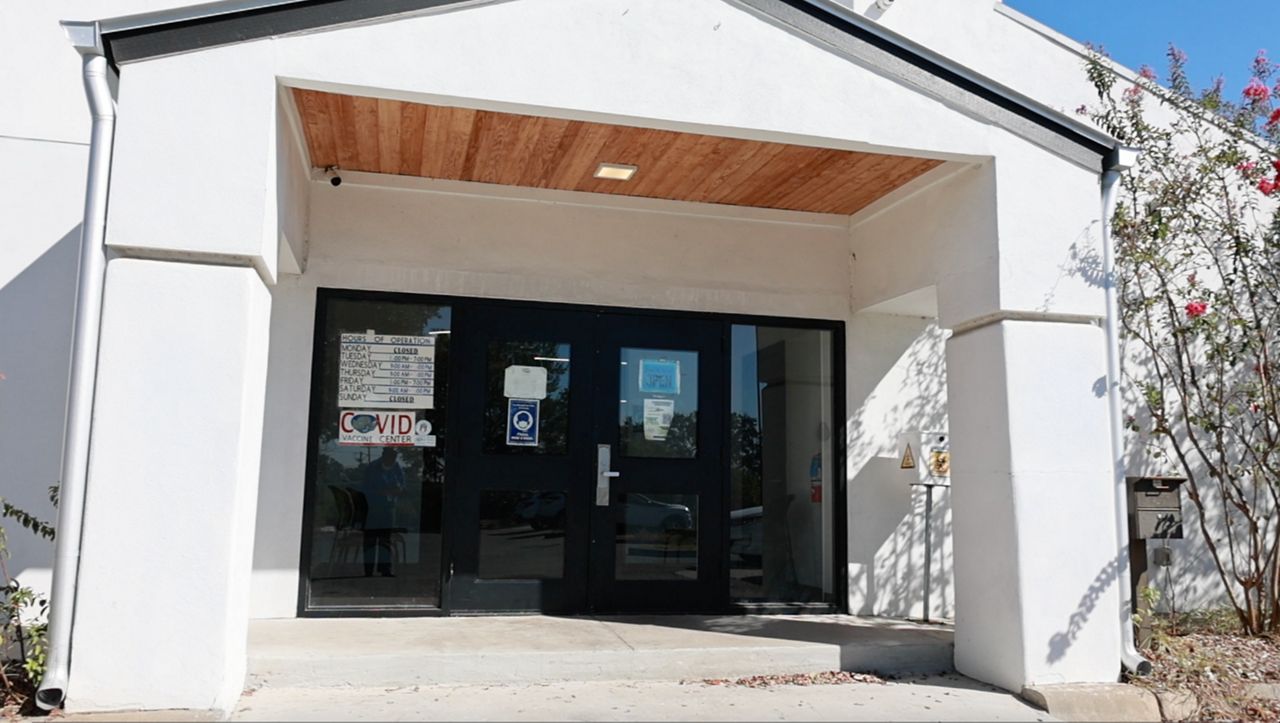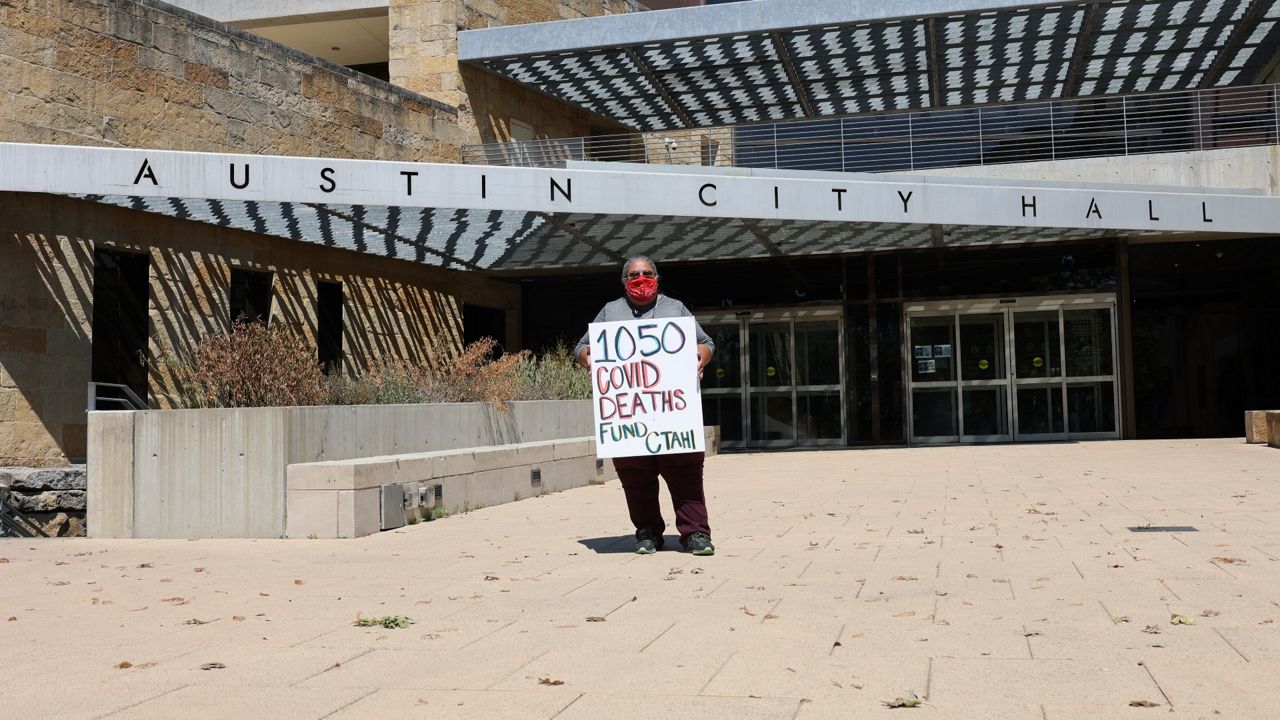AUSTIN — City officials are opting out of a contract renewal where Central Texas Allied Health Institute would lose funding.
Dr. Jereka Thomas-Hockaday is disappointed in the city’s decision to withdraw funds amid an ongoing pandemic — a decision that would ultimately take away resources for residents living in underserved communities.
Central Texas Allied Health Institute, located at 1400 Tillery Street offers free testing and COVID vaccinations.

“Before the clinic was here there was no access. This has become a beacon for the entire East Austin community where they now can come and have access to safe information about vaccines and everything they need to get through COVID,” said Thomas-Hockaday
Thomas-Hockaday founded the clinic under a one-year partnership with Austin Public Health last year.
The goal was to provide adequate healthcare, such has testing sites and medical resources in underserved communities.
The facility is also a workforce training site for students in the healthcare industry.
“Our students and faculty and staff have been running the clinic solely off of the dollars from Austin Public Health to do this work and to gain valuable medical experience,” said Thomas-Hockaday.
Thomas-Hockaday says she received a notification via email from Austin Public Health, stating that her contract will not be renewed or extended. While she understands the terms of their agreement, she believes something more could have been done to save the community clinic as more vaccines are becoming available.
Spectrum News 1 reached out to Austin Public Health, regarding Central Texas Allied Health Institute. The following statement was made below:
"The agreement between Austin Public Health/City of Austin and the Central Texas Allied Health Institute (CTAHI) for vaccine operations at Ana Lark ends on 9/30/21 as agreed upon in the contract that was signed.
As part of the natural conclusion of any contract, APH constantly reviews and evaluates operations against data, current landscape, and community needs. Data from the Texas DSHS show most doses that the community is receiving are provided by pharmacies rather than public health departments. With the increased availability of vaccines and providers, APH has greater latitude to shift from a hub-type provider operation, as seen earlier this year with the initial rollout of vaccines and adjust operations to meet the needs of our indigent care and hard-to-reach populations. With the onset of different phases of vaccines being anticipated (third doses, boosters, pediatric eligibility), we continue to use data and trends to evaluate the efficacy of all operations and make the necessary strategic adjustments to ultimately best meet the needs of our community.
All that said, APH is preparing to issue a competitive solicitation for turn-key vaccine services for which organizations who provide such services will have the opportunity to place a bid for a new contract. The solicitation will assess the vendor's ability and experience to deliver services for the upcoming phases, focusing on equity and its capabilities to meet the logistical, operational, and reporting requirements. Information about the solicitation will be shared with all the city's registered vendors and publicized broadly to attract diverse applicants to help us find the best partner to provide services to these hard-to-reach audiences within our community.
As a side note, the APH and CTAHI partnership is continuing through a workforce development agreement. We believe their work is critical to building a diverse, locally sourced health care workforce and will have long-term benefits to creating avenues for residents to receive culturally congruent health care in Austin and Travis County. We also plan to continue supporting the workforce development program programmatically by extending the opportunity to develop internship and externship opportunities for CTAHI students within APH operations, similar to our partnership with ACC, UT School of Nursing, and other academic institutions."
Joining the fight to save the clinic is staff member Gloria Vera-Bedolla.

Bedolla spends most mornings protesting at City Hall. She stands on the corner with a sign that reads the up-to-date COVID death count, hoping to get the attention of someone who will listen.
“This is very personal to me. So far, we’ve had 1,050 reported COVID deaths. Half of those are Latinos. I have lost so many family members,” said Vera-Bedolla.
Hispanics Americans account for nearly 50%t of COVID-related deaths in Travis County, according to Austin Public Health.
“When is it enough? When are we going to say let’s invest some real time and money and effort into the fight against COVID in East Austin? ” said Bedolla.
While the facility is still subject to close at the end of the month, Thomas-Hockday says she isn’t giving up.
Central Texas Allied Health Institute is partnering with various organizations to raise money to save one of the only sources of healthcare in East Austin.



